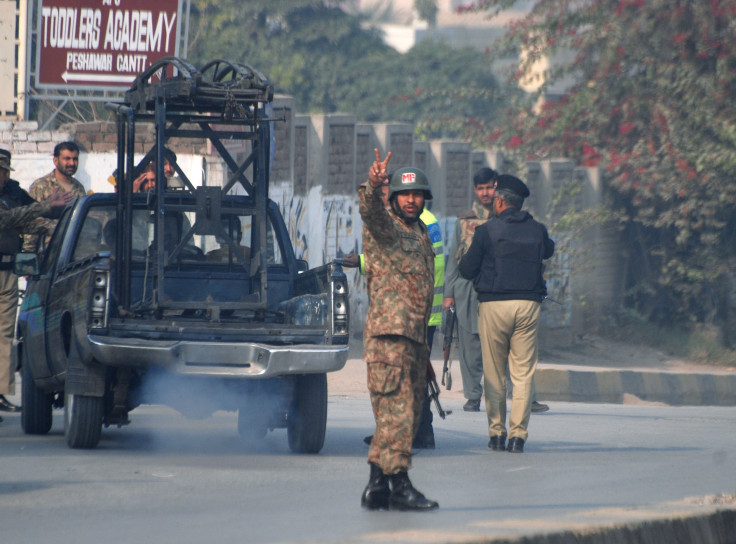Why Does the Taliban Attack Schools? Pakistan Siege Latest Sign Militants Are Targeting Students

The Pakistani Taliban carried out its bloodiest attack yet on a school in Peshawar on Tuesday, killing at least 130 people, most of them children. The shocking carnage has drawn worldwide condemnation and has uncharacteristically united Pakistan’s political and military classes in opposition to the Taliban. The militant organization has a history of attacking schools and students, but the unprecedented scale this time has raised the question of why the group uses such a horrific tactic.
A Taliban spokesman said the assault on the school was carried out as revenge for a recent army offensive against Taliban strongholds in the North Waziristan tribal district. “We are doing this because we want them to feel the pain of how terrible it is when your loved ones are killed," said Muhammad Khorasani, according to the AFP.
The school, located near a military cantonment in Peshawar, is part of a national network of army-run educational facilities in Pakistan. Many of the students were thought to have been related to army staff, though some sources said most of them had no connection to the military, the Associated Press reported. Nonetheless, the school’s military connection was likely significant to the Taliban, which had vowed to step up attacks on the army in response to its crackdown on insurgents.
Even before the recent military offensive, the Taliban have been known for targeting students in the past, most notably Pakistani education advocate Malala Yousafzai, who was shot in the face by militants in a 2012 attack on her schoolbus. The Nobel Peace Prize winner condemned the attack on Monday as a “senseless and cold-blooded act of terror.” “Innocent children in their school have no place in horror such as this,” the 17-year-old activist said in a statement. These words were echoed by United Nations Secretary-General Ban Ki-Moon, who condemned the killings and said “going to school should not have to be an act of bravery,’’ according to the AP.
Taliban gunmen also targeted students in a 2011 attack on a schoolbus in Peshawar, in which four children were killed and 14 others wounded. The militants claimed that assault was an act of revenge against local tribesmen, whom they wanted to punish for resisting the insurgent movement, according to the AP.
In the past, militants have opted to attack schools in the dead of night when the risk of student fatalities was minimal. This strategy was intended as a way of targeting what the organization saw as symbols of Western and government authority, while also serving as a way of denying military forces the ability to set up temporary bases in the buildings, according to the New York Times.
The Taliban's increasing desperation may have contributed to its decision to go after the school the way it did, said some analysts. The school likely represented a soft target for the militants, who have seen their operational capabilities weakened under the military crackdown, Omar Hamid, head of Asia Pacific Country Risk at the global analytics firm IHS in London, told Deutsche Welle. "The TTP has been weakened, but retains the ability to carry out attacks like this. It would probably be harder for them to launch attacks further away from their area of operations, say in the eastern Punjab province, but Peshawar is very accessible from the tribal areas and would be an obvious target, as the army formation running the operation is based there," Hamid said.
As details emerge from the shocking attack -- including that the militants made no demands and started shooting children as soon as they entered the building, according to Reuters -- Pakistan's Taliban may grow increasingly isolated as once-sympathetic politicians begin to distance themselves. Imran Khan, one of the most prominent politicians thought to have these sympathies, issued a denunciation of the group on Monday. "There is no justification for this," said Khan, according to the Times of India. "We are with the families of the victims. All of Pakistan is with them."
© Copyright IBTimes 2024. All rights reserved.






















